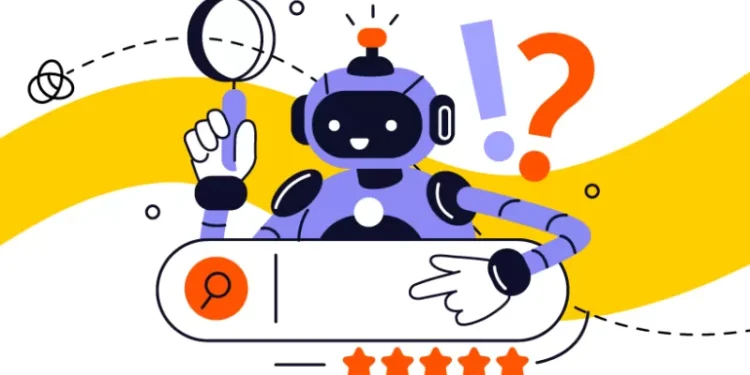In today’s digital age, having a strong online presence is crucial for any business or website. With so much competition on the internet, it’s important to stand out and attract visitors to your site. This is where SEO, or search engine optimization, comes into play. SEO is the process of optimizing your website to rank higher on search engine results pages (SERPs). It’s the cornerstone of any successful website and online business. However, with the rise of AI algorithms, the traditional methods of SEO are rapidly changing. In this article, we’ll explore how AI is transforming the SEO landscape and how you can use it to your advantage.
First and foremost, it’s important to understand the role of AI in SEO. AI, or artificial intelligence, refers to the ability of machines to learn and make decisions without human intervention. In the context of SEO, AI is used by search engines to analyze and understand the content on a website, and determine its relevance to a user’s search query. This means that AI algorithms are constantly evolving and becoming more sophisticated, making it crucial for businesses to adapt their SEO strategies accordingly.
One of the biggest ways AI is changing SEO is through the use of voice search. With the rise of virtual assistants like Siri, Alexa, and Google Assistant, more and more people are using voice search to find information online. This means that traditional keyword-focused SEO strategies are becoming less effective. Instead, websites need to focus on creating conversational and natural-sounding content that can be easily understood by AI algorithms. This includes using long-tail keywords and answering common questions in your content.
Another way AI is impacting SEO is through personalized search results. With the help of AI, search engines can now deliver personalized search results based on a user’s search history, location, and other factors. This means that businesses need to focus on creating personalized and relevant content for their target audience. This can be achieved by understanding your audience’s interests and tailoring your content to meet their needs.
AI is also playing a role in backlink analysis, which is a key factor in SEO. Backlinks are links from other websites that direct users to your site. In the past, search engines relied on backlinks as a measure of a website’s credibility and authority. However, with the help of AI, search engines can now analyze the quality and relevance of backlinks, making it more important for businesses to focus on getting high-quality backlinks from reputable sources.
In addition, AI is also changing the way websites are structured and designed. With the rise of voice search and personalized search results, websites need to be optimized for mobile devices and have a user-friendly layout. This includes having a clear and concise navigation menu, fast loading times, and mobile responsiveness. AI algorithms favor websites that provide a good user experience, so it’s important to prioritize these factors in your website design.
So, how can you leverage AI to your benefit in the ever-changing SEO landscape? The key is to stay informed and adapt your strategies accordingly. Keep up with the latest trends and updates in AI and SEO, and make sure to regularly review and update your website’s content and structure. Additionally, it’s important to focus on creating high-quality, relevant, and personalized content for your target audience. This will not only improve your search engine rankings but also attract and retain visitors to your site.
In conclusion, AI algorithms are changing everything we knew about SEO. While this may seem daunting, it also presents new opportunities for businesses to improve their online visibility and attract visitors. By understanding the role of AI in SEO and adapting your strategies accordingly, you can stay ahead of the competition and ensure the success of your website and online business. So, embrace the changes brought by AI and use it to your advantage in the ever-evolving world of SEO.






